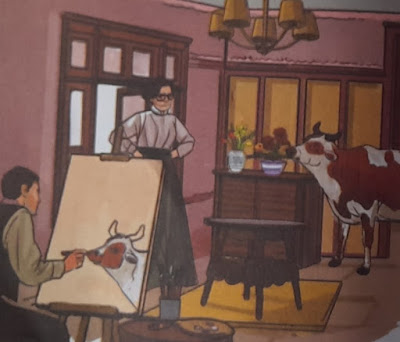3. Why did Sven keep the bird a secret from his colleagues?
Sven kept the bird a secret as it is not usual to have a bird in a space station. However, there is no regulation against it.
4. How was the presence of the bird discovered?
The presence of the bird was discovered by the narrator. He heard her musical whistle beside his ear. He thought that the sound was from the intercom. Later he realized that it was from the bird.
5. Why did the crew want to hide the bird from the VIPs from the Earth? How did they deal with the issue?
The crew wanted to hide the bird from the VIPs from the Earth as the bird had become a general pet to them. They didn’t want to risk the discovery of the bird as it might be taken away from them.
They dealt with the issue by keeping it in various hiding places of the space station. They had to explain the curious peeps and whistles of the bird as she got noisy when upset.
6. What was the alarm meant for? What had caused its failure?
The alarm was meant to warn the crew of the space station when the air quality becomes poor. A rare eclipse by the earth’s shadow made the equipment freeze and it caused the failure of the alarm.
7. How is life in space different from life on Earth?
There is no gravity or air in space. The environment is controlled. We need to acquire the skill of working under these conditions. The available air is limited and it is purified and recycled.
Reading 2
1. Did Sven do the right thing by getting a bird into the spaceship? Why do you think so?
Yes. I think that Sven did the right thing by getting a bird in the spaceship. I think so because the bird made them realize that there was something wrong with the air in the space station. That knowledge saved all the people there. The bird became a general pet to all and there was no regulation against getting birds into the spaceship.
2. Based on your reading, justify the title of the story?
The title, “The Feathered Friend” is quite appropriate. A canary bird becomes a general pet of a spaceship crew. Canary birds cannot survive in poor-quality air. One day, the bird almost died. She is revived by the crew with help of oxygen. Then the crew found out that the quality of air in the spaceship is poor. Thus, the bird saves the crew and proves that a friend in need is a friend indeed.
3. What according to you, is a better choice - carrying a canary or an alarm system? Why do you think so?
I think carrying a canary is a better choice. I think so because there is no foolproof alarm system.
4. Who saved the lives on board: Sven or the Canary? Why do think so?
I think both Sven and the Canary saved the loves on board. Because of Canary’s illness, the crew came to know about the poor quality of the air. It was Sven who found the Canary in a near-death position. So, both saved the lives on board.


















